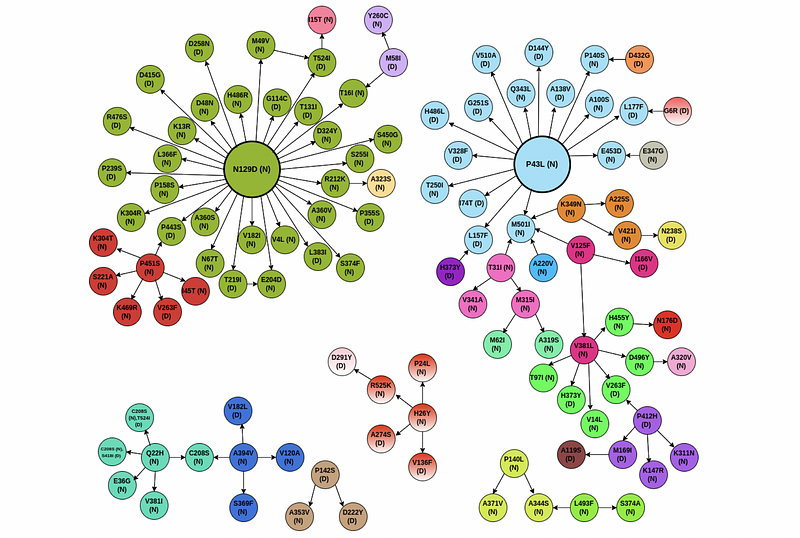SARS-CoV-2 NSP14 governs mutational instability and assists in making new SARS-CoV-2 variants

SARS-CoV-2 NSP14 governs mutational instability and assists in making new SARS-CoV-2 variants
Hassan, S. S.; Bhattacharya, T.; Nawn, D.; Jha, I.; Basu, P.; Redwan, E. M.; Lundstrom, K.; Barh, D.; Andrade, B.; Tambuwala, M. M.; Aljabali, A. A.; Hromic-Jahjefendic, A.; Baetas-da-Cruz, W.; Uversky, V. N.
AbstractSevere acute respiratory syndrome coronavirus 2 (SARS-CoV-2), the rapidly evolving RNA virus behind the COVID-19 pandemic, has spawned numerous variants since its 2019 emergence. The multifunctional NSP14 enzyme, possessing exonuclease and mRNA capping capabilities, serves as a key player. Notably, single and co-occurring mutations within NSP14 significantly influence replication fidelity and drive variant diversification. This study comprehensively examines 120 co-mutations, 68 unique mutations, and 160 conserved residues across NSP14 homologs, shedding light on their implications for phylogenetic patterns, pathogenicity, and residue interactions. Quantitative physicochemical analysis categorizes 3953 NSP14 variants into three clusters, revealing genetic diversity. This research underscores the dynamic nature of SARS-CoV-2 evolution, primarily governed by NSP14 mutations. Understanding these genetic dynamics provides valuable insights for therapeutic and vaccine development.